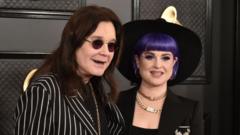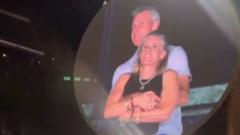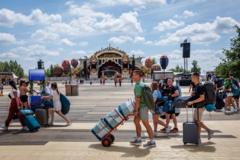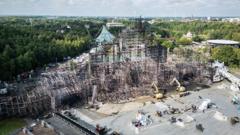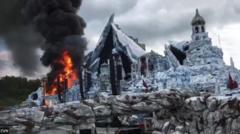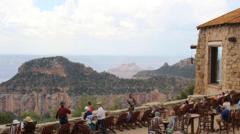As the ceremonial reopening of Notre Dame approaches, President Emmanuel Macron is determined to harness the occasion as a catalyst for his political revival. This historic event on Saturday will not only mark the return of one of France's most iconic structures, devastated by fire five years ago, but it also arrives during a critical period for Macron's presidency, following the downfall of Prime Minister Michel Barnier's government.
Macron Seeks Revival Amidst Notre Dame's Grand Reopening

Macron Seeks Revival Amidst Notre Dame's Grand Reopening
In a bid for political renewal, Emmanuel Macron aims to leverage the cathedral's reopening as a symbol of France's resilience during tumultuous times.
On the special day, Macron will be joined by international dignitaries including US President-elect Donald Trump and Prince William, celebrating the completion of extensive renovations that represent France’s creative and organizational prowess. In his address, Macron is expected to inspire confidence in the nation and emphasize the hard work that went into restoring the cathedral, with upcoming events highlighting both the religious significance and artistic celebration of this architectural marvel.
The reopening holds deep meaning as the Catholic Church regains stewardship of Notre Dame, with a ceremonial mass led by Archbishop Laurent Ulrich set to occur the following day. Though Pope Francis will not attend, his message will be conveyed, reflecting the complicated relationship between him and the French government amid ongoing controversies.
Restoration efforts required immense resources, including an impressive €850 million ($897 million) raised for the project and more than 2,000 skilled workers contributing to the restoration of both the building’s structural integrity and its artistic detail. After years of extensive labor, Notre Dame is not just a restored site; it stands as a beacon of hope and resilience for a country seeking to rise from political disarray and uncertainty, potentially drawing back the millions of tourists who once flocked to witness its grandeur.
This reopening comes at a pivotal time for Macron, as he endeavors to project an image of optimism and strength to a nation navigating through its crises, particularly with the Paris Olympics on the horizon in 2024. With expectations high for the event and its implications for his leadership, Macron's challenge lies in bridging the contrast between the spirit of the cathedral and the state of French politics.
The reopening holds deep meaning as the Catholic Church regains stewardship of Notre Dame, with a ceremonial mass led by Archbishop Laurent Ulrich set to occur the following day. Though Pope Francis will not attend, his message will be conveyed, reflecting the complicated relationship between him and the French government amid ongoing controversies.
Restoration efforts required immense resources, including an impressive €850 million ($897 million) raised for the project and more than 2,000 skilled workers contributing to the restoration of both the building’s structural integrity and its artistic detail. After years of extensive labor, Notre Dame is not just a restored site; it stands as a beacon of hope and resilience for a country seeking to rise from political disarray and uncertainty, potentially drawing back the millions of tourists who once flocked to witness its grandeur.
This reopening comes at a pivotal time for Macron, as he endeavors to project an image of optimism and strength to a nation navigating through its crises, particularly with the Paris Olympics on the horizon in 2024. With expectations high for the event and its implications for his leadership, Macron's challenge lies in bridging the contrast between the spirit of the cathedral and the state of French politics.


